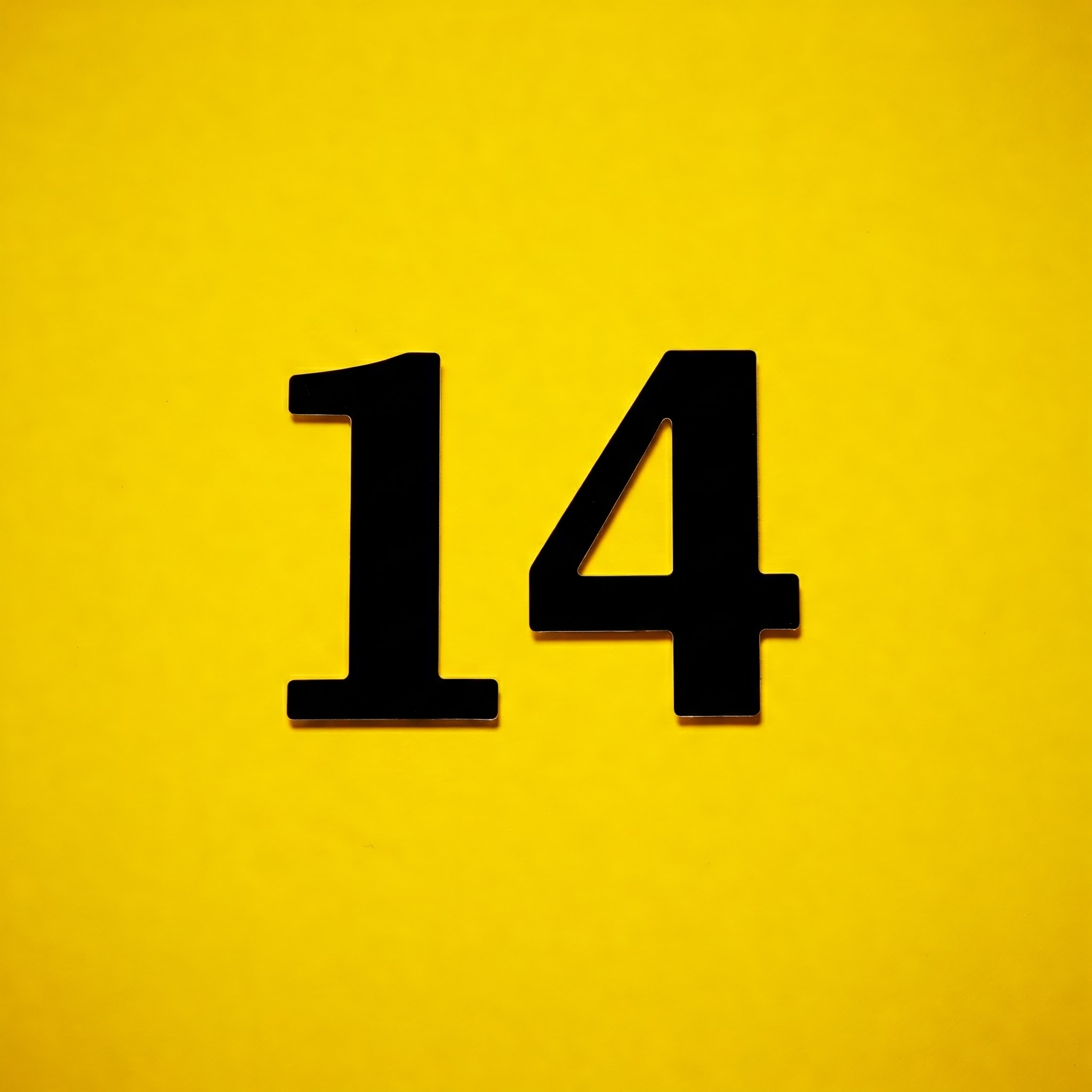Fourteen
Definition
Fourteen is the cardinal number equal to the sum of ten and four. It is represented numerically as 14 and is the number following thirteen and preceding fifteen.
Parts of Speech
- Noun
- Adjective
Pronunciation
American English
- IPA Pronunciation: /ˌfɔːrˈtiːn/
- Respelling: for-TEEN
British English
- IPA Pronunciation: /ˌfɔːˈtiːn/
- Respelling: faw-TEEN
Etymology
The word "fourteen" originates from Old English "feowertyne," a combination of "feower" (four) and "-tyne" (ten more). It derives from Proto-Germanic "*fedwartehun" and Proto-Indo-European roots "*kʷetwóres" (four) and "*déḱm" (ten).
Derivatives
- Fourteenth (adjective/noun)
- Fourteenfold (adjective/adverb)
- Fourteen-year-old (noun/adjective)
- Fourteen-minute (adjective)
- Fourteen-hundred (adjective)
Synonyms
- XIV (Roman numeral)
- Fourteen units
- None
Antonyms
- None
Usage
The term "fourteen" is used in various contexts, such as counting, timekeeping, and age descriptions, as in "The clock struck fourteen minutes past the hour." It is also used in cultural or symbolic references, such as "The fourteen points of the plan."
Related Terms
- Four: The base number in "fourteen."
- Ten: The additional component in the composition of fourteen.
- Decimal: A numerical system in which "fourteen" is represented as 14.
Detailed Definitions
Noun
- The cardinal number equal to the sum of ten and four: Refers to the numerical value or count.
- Example: "There are fourteen apples in the basket."
- A group or set of fourteen items: Describes a collection containing 14 units.
- Example: "The package contains fourteen crayons."
Adjective
- Being fourteen in number: Describes a quantity or amount.
- Example: "The hall can accommodate fourteen tables."
fourteen



🇨🇳 Mandarin Chinese
- 十四
- IPA: /ʂɨ˥˩ sɨ˥˩/
- English Respell: shí sì
🇮🇳 Hindi
- चौदह
- IPA: /t͡ʃɔːd̪əɦ/
- English Respell: chaudah
🇪🇸 Spanish
- Catorce
- IPA: /kaˈtorθe/ (Spain), /kaˈtoɾse/ (Latin America)
- English Respell: catorce
🇫🇷 French
- Quatorze
- IPA: /ka.tɔʁz/
- English Respell: quatorze
🇦🇪 Arabic (Modern Standard)
- أربعة عشر
- IPA: /ʔarbaʕat ʕaʃr/
- English Respell: arba'at 'ashr
🇧🇩 Bengali
- চৌদ্দ
- IPA: /tʃoud̪d̪o/
- English Respell: choudo
🇷🇺 Russian
- Четырнадцать
- IPA: /t͡ɕɪtɨrnat͡sɨtj/
- English Respell: chetyrnadtsat'
🇵🇹 Portuguese
- Catorze
- IPA: /kɐˈtoɾʃɨ/
- English Respell: catorze
🇮🇩 Indonesian
- Empat belas
- IPA: /əmˈpat bəˈlas/
- English Respell: empat belas
🇩🇪 German
- Vierzehn
- IPA: /ˈfiːɐ̯tseːn/
- English Respell: vierzehn
🇯🇵 Japanese
- 十四 (じゅうよん)
- IPA: /dʑɨᵝːjoɴ/
- English Respell: jūyon
- 十四 (じゅうし)
- IPA: /dʑɨᵝːɕi/
- English Respell: jūshi
🇻🇳 Vietnamese
- Mười bốn
- IPA: /mə̌ɘj˨˩ ɓʊn˧ˀ˨/
- English Respell: mười bốn
🇰🇷 Korean
- 십사
- IPA: /sʰip̚ sa̠/
- English Respell: sip-sa
🇹🇷 Turkish
- On dört
- IPA: /on dœɾt/
- English Respell: on dört
🇵🇰 Urdu
- چودہ
- IPA: /t͡ʃoːd̪aː/
- English Respell: chodha





